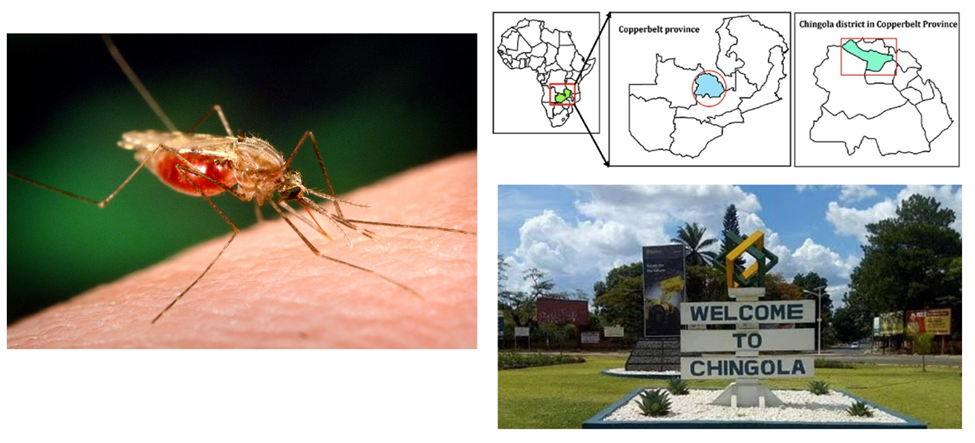A love-hate relationship
- Tabeth
- Apr 6, 2023
- 3 min read
Hello everyone, let’s chat.
I was born and raised in Zambia, but I obtained my undergraduate and master’s degrees from the University of Namibia, Namibia. I am passionate about eliminating mosquito-borne diseases, so I am currently working on my Ph.D. at Auburn University studying how mosquitoes evolve in their behavior and ecology to become efficient vectors. What is a vector you ask? Well, in a nutshell, according to Google, “it is a living organism that transmits an infectious agent from an infected animal to a human or another animal”.

A malaria vector Where I was born and raised
I always tell people that I have a love-hate relationship with mosquitoes which sounds insane for the first part but hear me out, do not lose interest yet! Growing up, my mother would say, “do not play in the rain you will get malaria” because to her any fever-related disease was malaria. It sounds funny now because while playing in the rain was prohibited, we were never forced to sleep under a mosquito net to prevent the bites, and hence malaria transmission. However, after my master's, I acquired some knowledge about mosquitoes, and I realized that there is so much about them that we do not understand. With that said, I love mosquitoes because there is so much information packed in such a tiny insect, and it interests me so much to want to unpack it and share it with you all. Mosquitoes are so diverse in their biting and resting behaviors and their ecology. Some mosquitoes feed solely outdoors, others indoors, some will not bother you if you are sleeping under a net (they will find alternative blood meals), while others are strictly anthropophilic, meaning they will feed on a human whether you and I like it or not (See video below).
Mosquito trying to bite through a net
This diversity amazes me! However, my hatred for mosquitoes is what fuels my passion to end their terror of transmitting diseases. For instance, malaria (which is transmitted by female mosquitoes in the genus Anopheles) is a major cause of death in many tropical countries, and more than 40% of the world’s population is at risk of contracting this disease. In 2018 alone, malaria was responsible for 228 million clinical cases and approximately 405 000 deaths worldwide. About 93% of those cases and 94% of those deaths were in Africa, and my home country Zambia is not immune to the effects of this disease; more than 10 million people in Zambia are at risk of malaria infection because the climatic conditions are favorable enough to support large populations of vector mosquitoes. Additionally, the main malaria vectors in Zambia: Anopheles funestus s.s and An. rivulorum have become resistant to deltamethrin (a pyrethroid) and bendiocarb (a carbamate), which are the main insecticides used in indoor residual spraying. To make it even worse, An. Stephensi is another vector of significant concern as far as malaria transmission is concerned. Until recently, it was only known to be in Asia, but it has invaded Africa. It is just a matter of time before this vector engulfs entire Africa. This is worrisome because it is an aggressive feeder, evades capture by most of the surveillance methods, outcompetes the native species in the aquatic stage, and is equally resistant to insecticides. This is likely to hinder the progress of eliminating malaria.

Distribution of malaria (Source: Google)
Mosquitoes need to be infected with the parasites to be able to transmit malaria. If we cannot control the abundance of mosquitoes, at least we should sever the mosquito-parasite relationship. Unfortunately, there are also reports of parasite drug resistance. These factors all lead to heightened malaria morbidity and mortality. It is for these reasons that I aim to be at the frontline of malaria control researchers to work to eliminate the disease because it feels like we are losing the battle against the disease. I want to keep track of the spatiotemporal changes in vector composition and understand what role the parasites play in that. This will help implement effective control interventions. So, come along while I explore these avenues and end malaria transmission!

Photo credit: Tabeth Mwema and Google
Sources
YouTube video - Mosquito trying to bite through net
Chanda, J., Saili, K., Phiri, F., Stevenson, J.C., Mwenda, M., Chishimba, S., Mulube, C., Mambwe, B., Lungu, C., Earle, D., Bennett, A., Eisele, T.P., Kamuliwo, M., Steketee, R.W., Keating, J., Miller, J.M. and Sikaala, C.H., 2020. Pyrethroid and Carbamate Resistance in Anopheles funestus Giles along Lake Kariba in Southern Zambia. The American Journal of Tropical Medicine and Hygiene, 103(2_Suppl), pp.90–97. https://doi.org/10.4269/ajtmh.19-0664.


Comments